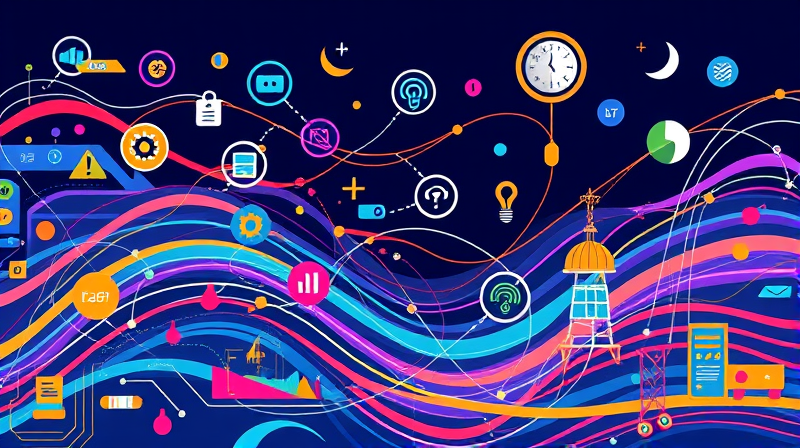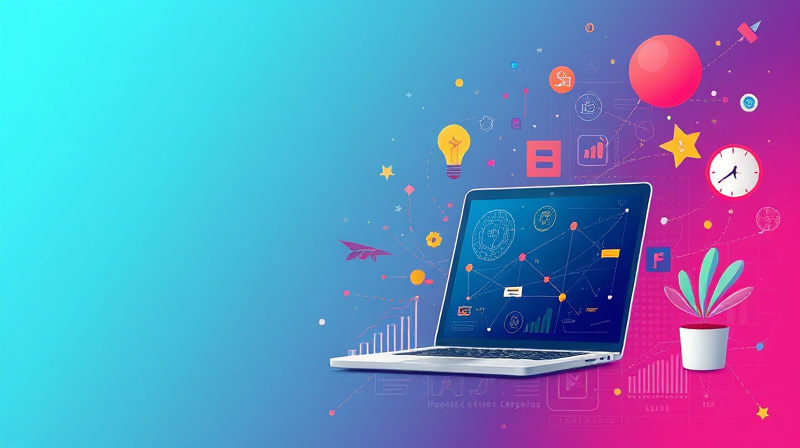In today’s fast-paced world, finding the right balance between work, personal responsibilities, and ongoing education can feel like a high-wire act. Many of us find ourselves trying to keep pace with the ever-changing demands of modern life, where flexibility and adaptability are more than just buzzwords—they are vital tools for success.
Understanding the challenge is the first step in overcoming it. The landscape of work and study in 2025 presents unique challenges and opportunities. With nearly 60% of Americans reporting an unhealthy work-life balance and a significant number working well beyond the standard hours, it is clear that the struggle to maintain equilibrium is widespread.
The New Norm: Flexibility and Hybrid Models
The rise of the hybrid and remote work models has revolutionized how people manage their daily lives. A growing body of research shows that flexible schedules can significantly improve productivity and mental health. For example, statistics indicate that over half of employees find they are more productive working from home, and many credit this flexibility with enhancing their overall quality of life.
Flexibility is more than just a perk—it is a strategic advantage. Not only do hybrid models support a balanced routine, but they also allow individuals to shape their schedules to meet personal and professional goals. In a world where traditional office hours are no longer the only option, embracing flexible work arrangements can pave the way for a more balanced lifestyle.
Many individuals have embraced this shift by integrating work-from-home options into their routines. This transformation is not without its challenges, but the benefits may well outweigh the hurdles. The improved work-life balance experienced by many remote and hybrid workers is a powerful testament to the potential of this new approach.
Nurturing Mental and Emotional Well-Being
Mental health is an essential part of the equation when it comes to juggling multiple responsibilities. Studies have underscored the fact that disruptions such as irregular work hours and heightened stress levels can lead to serious consequences like depression, anxiety, and sleep disturbances.
Prioritizing mental health is crucial. It is important to recognize that tools and support systems are available to help manage these stresses. Even the assurance that mental health resources are on hand can boost overall morale and productivity. By including mental health days in your schedule and speaking out about the challenges you face, society can push for better support and policies in workplaces and educational institutions alike.
Taking small steps to safeguard one’s mental well-being can have far-reaching effects. Whether that means scheduling regular breaks, engaging in mindfulness practices, or simply adjusting work hours, each positive change contributes to a healthier lifestyle.
Strategies to Thrive in a Busy World
Implementing effective strategies is key to managing time and energy effectively. Here are some practical tips that can help:
- Embrace flexibility: Use flexible work or study options whenever possible to customize your daily routine.
- Set realistic goals: Let go of perfectionism. Understand that missing a checkmark on your to-do list is perfectly acceptable at times.
- Prioritize self-care: Dedicate time for mental health days, exercise, and activities that bring you joy.
- Utilize productivity tools: Leverage technology to automate tasks and minimize cognitive overload.
- Create boundaries: Distinguish between work time and personal time by setting clear start and end times for your day.
These strategies can be life-changing. They empower individuals to not only get through the day but to thrive and enjoy the process.
Moreover, it is important to note that the responsibility for maintaining work-life balance does not rest solely on the individual. Employers, educators, and policymakers all have roles to play in fostering an environment that supports overall well-being.
Companies that prioritize work-life balance tend to see a boost in productivity and employee satisfaction. By offering support through flexible arrangements and mental health resources, employers can create a culture where everyone has the opportunity to excel.
Looking Ahead: A Future of Balance and Resilience
The journey towards a more balanced life is ongoing, and adapting to new models and methods is part of that journey. In 2025, the focus is shifting sharply from merely surviving a hectic schedule to designing a life that aligns with personal values and sustainable practices.
It is clear that achieving a harmonious balance is a marathon, not a sprint. As we navigate the complexities of daily life, it becomes increasingly apparent that adaptability and self-compassion are essential. Recognizing that balance is a continuous process helps remind us that progress is more important than perfection.
This mindset not only helps to reduce the pressure felt by individuals trying to juggle work, life, and classes but also encourages a more supportive and understanding community. By sharing personal strategies and success stories, we can all learn from one another and ultimately build a future where balance and productivity go hand in hand.
With the world evolving rapidly, finding the equilibrium between professional and personal pursuits is indispensable. Each step towards a balanced lifestyle is a step towards improved health, creativity, and happiness. As we continue to innovate and adapt, the dream of an integrated, resilient life is achievable for everyone.








